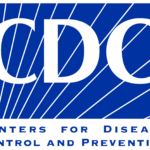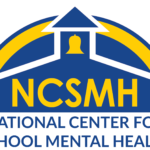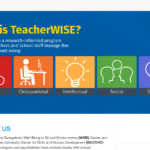Educator professional development and support involves education opportunities for teachers to improve or enhance their teaching methods or classroom environment.
Is seeing believing? Can video coaching help support teacher practice in early childhood classrooms?
Attending a high-quality prekindergarten program has substantial benefits for young children, through long-term positive effects on academic achievement and physical and mental health.
Continue reading →Understanding trauma and supporting staff and students to thrive
This blog post delves into these four topics and provides ready-to-use training and coaching resources to equip all school staff with the knowledge and evidence-based strategies to support students and staff who have experienced trauma.
Continue reading →BEST in CLASS: What Coaches and Teachers Say About It. Part 1: Coach Perspectives
BEST in CLASS (Behavioral, Emotional, and Social Training: Competent Learners Achieving School Success) is a tier 2 (targeted) evidence-based intervention for young children with persistent and intensive challenging behaviors.
Continue reading →Avoiding Implicit Bias in Classroom Observations
Classroom observations are a key tool in educational research and practice, used to evaluate teaching methods, assess student engagement and behavior, and gather data on classroom interactions to inform instructional strategies and policy decisions. However, observations are not immune to implicit biases—or attitudes, behaviors, and actions that are prejudiced in ...
Continue reading →Supporting Students with Behavioral and Emotional Needs: A Conversation with Carl Sumi
In the latest episode of The SRI Homeroom podcast, Senior Principal Education Researcher Carl Sumi joined host Kori Hamilton Biagas to discuss strategies, interventions, and recommendations for educators, schools, and researchers hoping to meet that need head-on.
Continue reading →BEST in CLASS: What Coaches and Teachers Say About It. Part 2: Teacher Perspectives
Practice-based coaching (PBC) promotes a strong collaborative partnership between teachers and coaches to facilitate the use of effective instructional practices. The PBC process includes skills instruction on BEST in CLASS practices, shared goals and action planning, implementation support, classroom observation, and reflection and feedback.
Continue reading →Promoting Mental Health and Well-Being in Schools: An Action Guide for School and District Leaders
Schools are prioritizing students’ mental health, and there are many tools and resources to choose from. CDC created this action guide as a place to start. It can help school and district leaders build on what they are already doing to promote students’ mental health and find new strategies to ...
Continue reading →2024 School Mental Health Quality Guides
These 2024 editions contain major updates and an and easy-to-follow format complete with action steps, best practices, examples from the field, and more.
Continue reading →Handle With Care: Expanding and evaluating trauma supports for students
Now more than ever, many children and youth are exposed to potentially traumatic events, whether it be from community or school violence, natural disasters, or the sudden loss of a loved one.
Continue reading →TeacherWise Well-Being Notebook from WISE Georgetown
The Center for Wellbeing in School Environments (WISE) works with Washington DC school communities to reduce mental health and educational disparities.
Continue reading →










